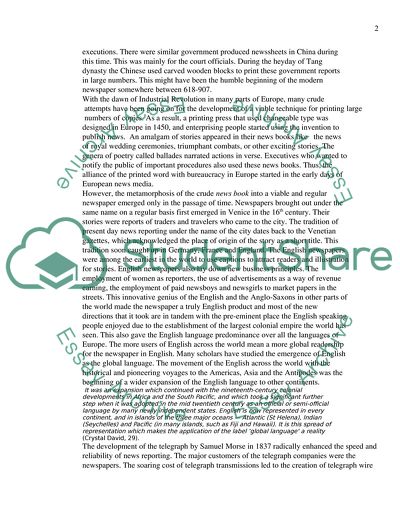Cite this document
(“Media Studies Essay Example | Topics and Well Written Essays - 1250 words”, n.d.)
Media Studies Essay Example | Topics and Well Written Essays - 1250 words. Retrieved from https://studentshare.org/miscellaneous/1536702-media-studies
Media Studies Essay Example | Topics and Well Written Essays - 1250 words. Retrieved from https://studentshare.org/miscellaneous/1536702-media-studies
(Media Studies Essay Example | Topics and Well Written Essays - 1250 Words)
Media Studies Essay Example | Topics and Well Written Essays - 1250 Words. https://studentshare.org/miscellaneous/1536702-media-studies.
Media Studies Essay Example | Topics and Well Written Essays - 1250 Words. https://studentshare.org/miscellaneous/1536702-media-studies.
“Media Studies Essay Example | Topics and Well Written Essays - 1250 Words”, n.d. https://studentshare.org/miscellaneous/1536702-media-studies.


